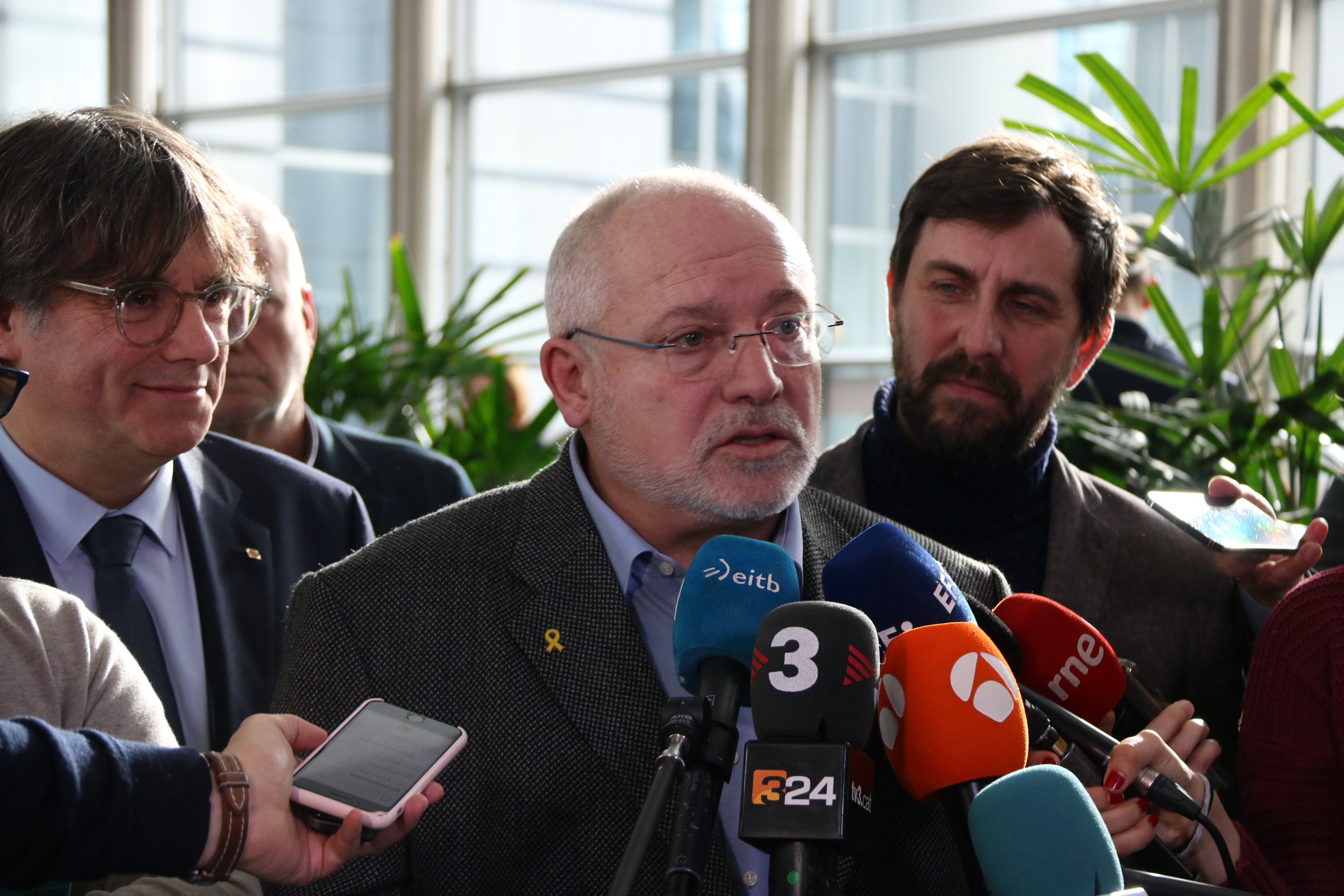They aren't stopping. The Spanish prosecutors at the Supreme Court have asked judge Pablo Llarena to issue a new European Arrest Warrant (EAW) against the former Catalan culture minister Lluís Puig, prosecuted for an alleged offence of aggravated misuse of funds over the 2017 Catalan independence referendum, according to a document presented this Tuesday to which ElNacional.cat has had access. Puig's case, defended by the lawyer Miquel Sàmper, has been paralyzed since January this year when the European Court of Justice (ECJ) ruled partially in favour of the Spanish judge, saying that international extraditions had to be complied with, except if the receiving country, in this case Belgium, saw that the person sought by a country's justice system belongs to an Objectively Identifiable Group of People (GOIP), whose rights may be violated if they are extradited, as the Catalan political exiles maintain.
The public prosecution brief is signed by the four prosecutors who took part in the Supreme Court trial of the Catalan independence leaders in 2019: Consuelo Madrigal, Jaime Moreno, Javier Zaragoza and Fidel Cadena. They state that the former culture minister was prosecuted on March 21st, 2018 for crimes of misuse of funds and disobedience. Charges - they add - that are maintained after the Supreme Court judge added a new charge, in January 2023, following the reform of the Penal Code by the Spanish government, with the elimination of the crime of sedition. They maintain that the aggravated misuse of funds offence for which ex-minister Puig is being prosecuted is serious, as it has a punishment range of 6 to 12 years in prison.
Requisites are met
The prosecutors argue that on June 13th, 2023, the Supreme Court's appeal chamber confirmed the decision of judge Llarena, and dismissed the appeals of the Catalan president-in-exile, Carles Puigdemont, and former ministers Toni Comín, Clara Ponsatí and Puig. And they remind Llarena that in his resolution in January he already ordered the reactivation of the European and international arrest warrants for Puig, once the Supreme Court confirmed his imputation, as it did this summer.
They add that the European Court of Justice, in its judgment of January 31st, affirms that the relevant framework decisions "have to be interpreted in the sense that they do not preclude the issuing of several successive European Arrest Warrants against a person sought for the purpose of obtaining his surrender by a member state" if the execution of the first EAW does not infringe fundamental rights, and if the issuing of the latest EAW is proportionate, conditions which they maintain are fulfilled in the independence process case.
For the Supreme Court prosecutors, "the requirements established by the current legislation" over mutual recognition of criminal decisions in the European Union are met, and that allows the competent Spanish judicial authority to issue an arrest warrant. And as a consequence of all this, the prosecutors ask the investigating judge to "once again" issue an international arrest warrant for former minister Lluís Puig, who currently faces a valid arrest warrant only for Spain, as do the rest of the exiled Catalan politicians.
Puigdemont's arrest
Over the summer, the Spanish Supreme Court prosecutors also asked judge Llarena to reactivate the international arrest warrant against Puigdemont and Comín, after the European General Court (EGC) rejected their claim for immunity as members of the European Parliament. However, the Spanish judge indicated that he would prefer a final ruling on this matter, which has yet to be appealed to the higher EU court, the ECJ. Indeed, at the end of this week the deadline expires for Gonzalo Boye, defence lawyer of Puigdemont and Comín, to present an appeal against the first instance ruling given by the General Court.

